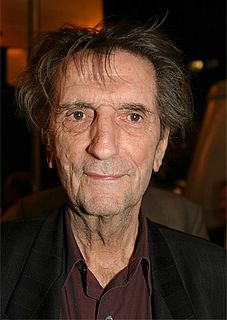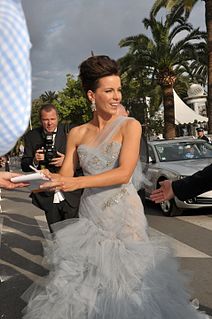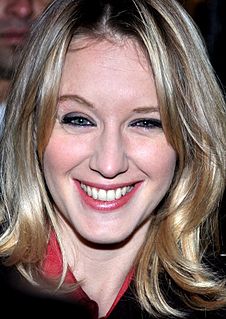A Quote by Susan Sarandon
There wasn't space to mood-up. I think Rose Byrne was just extraordinary. Talk about a character that could be really unsympathetic at times. She just jumped in these scenes that go from anger to hysteria to crying to laughing and back to anger. I just marveled.
Related Quotes
A woman wanted to know how to deal with anger. I asked when anger arose whose anger it was. She said it was hers. Well, if it really was her anger, then she should be able to tell it to go away, shouldnt she? But it really isn't hers to command. Holding on to anger as a personal possession will cause suffering. If anger really belonged to us, it would have to obey us. If it doesn't obey us, that means it's only a deception. Don't fall for it. Whenever the mind is happy or sad, don't fall for it. Its all a deception.
There is nothing wrong with anger. Anger is a beautiful emotion, as valid and rich as joy or laughter. But you have been taught to repress your anger. Your anger has been condemned. If anger is unexpressed, it will slowly poison you. The key is to know how to express your anger. Do not throw it out onto any one. No one is responsible for your anger. Simply express your anger. Beat up a cushion. Go for a run. Express your anger to a tree. Dance your anger. Enjoy it.
Balance and control come from healthy anger. This is just as aggressive as the unhealthy kind. But it is based on a belief and hope for change in social roles and institutions. Healthy anger demands change and creates the confrontations needed for change to occur. It also gives the other an opportunity to help make that change. “Our task, of course, is to transmute the anger that is affliction into the anger that is determination to bring about change. I think, in fact, that one could give that as a definition of revolution.
Even in my comedies, I don't take anger as a joke. I think anger and laughter are very close to each other, when you think about it. One of the things I like about a character: I always think it's fascinating when a character can turn on a dime and go from one emotion to another. I like watching that.
Somebody insults you and you feel anger. Don't miss this opportunity; try to understand why, why this anger. And don't make it a philosophical thing. Don't go to the library to consult about anger. Anger is happening to you -- it is an experience, a live experience. Focus your whole attention on it and try to understand why it is happening to you. It is not a philosophical problem. No Freud is to be consulted about it. There is no need! It is just foolish to consult somebody else while anger is happening to you. You can touch it. You can taste it. You will be burned by it.
I came home [after funerals] and I thought if I go back to California, where I had a small house, I don't think I'll ever come east again. So I decided to stay and go through the halls and stairways, talk to Gilda Radner, holler, express some of my anger and make sure there were no ghosts in the hallways that I should ever be afraid of.And then I found out - it sounds strange, but I found out she had left me the house. We never talked about her dying and what she was going to leave me or I would ever leave her. We just didn't talk about those things.
I think this is what people misunderstand about Martin Luther King saying to love your enemies. They think he was just using this silly little phrase, but what he meant was that as Black Americans we need to let our anger go, because holding on to it we hold ourselves down. We oppress ourselves by holding on to anger.
In my case what happened is that within about two weeks of beginning meditation, the anger already started to go away. My wife came to me and said, "What's going on?" and I said, "What are you talking about?" To which she replied, "This anger, where did it go?" I didn't even realize that my anger had been going away.
I think you approach a part the same way and just find out in what's making them tick and who they are. In a movie like this you may have a little less time and few dialogue scenes and exposition scenes for your character to really get that across, and so I wanted to be able to convey that she's not somebody who's just punching a clock but she has this weird emotional investment in her job to where she does get quite myopic and that's what makes her relentless.




































